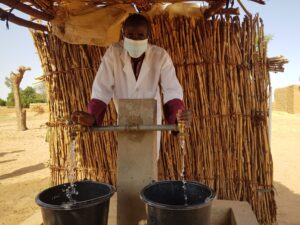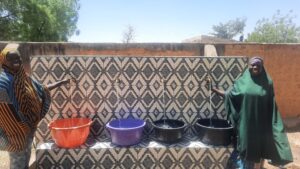By Omesh Prathiraja

Source: Wells Bring Hope
Niger is a country with a rich cultural heritage and breathtaking landscapes. However, behind its beauty, Niger continues to face significant water scarcity. Millions of Nigeriens lack water that’s safe for drinking and food preparation, and they have limited access to clean water for sanitation.
Water for Drinking and Food Preparation
According to UNICEF, approximately 44% of the population does not have access to improved water sources. Using unsafe water perpetuates a vicious cycle of malnutrition and diarrhea, waterborne diseases, and poverty that especially affects vulnerable groups like children and women.
Water for Sanitation
Clean, safe water is crucial for human health and development, yet a large portion of the population grapples with the lack of proper sanitation facilities. Insufficient access to clean water and proper sanitation facilities directly impacts the health and well-being of the population. Waterborne diseases such as cholera, diarrhea, and typhoid are prevalent, leading to high mortality rates, particularly among children.
Water Scarcity Affects Women and Children
The burden of water collection often falls on women and children, limiting their time and opportunities for education and economic activities.Because of your support, Wells Bring Hope is able to partner with World Vision to drill solar-powered, mechanized wells, build water systems and latrines, and promote hygiene and sanitation education. Additionally, we teach drip farming, show villagers how to use grey water to grow gardens, and also offer women training so they can start small businesses.
Ensuring clean water for Nigeriens will have far-reaching positive impacts on health, education, and economic development in the country. Together, we can pave the way towards a brighter, healthier, and more prosperous Niger.

Source: Wells Bring Hope
Source
https://www.unicef.org/niger/water-sanitation-and-hygiene
https://www.worldbank.org/en/country/niger/overview
https://wellsbringhope.org/the-need/


